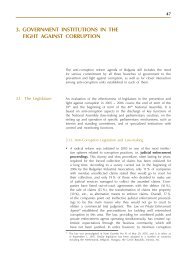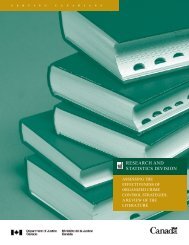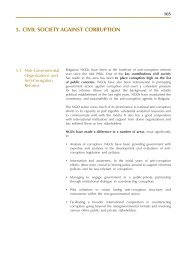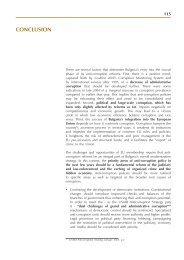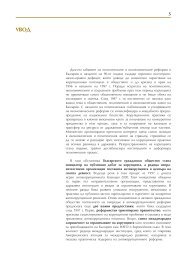National Threat Assessment 2008. Organised Crime - Politie
National Threat Assessment 2008. Organised Crime - Politie
National Threat Assessment 2008. Organised Crime - Politie
Create successful ePaper yourself
Turn your PDF publications into a flip-book with our unique Google optimized e-Paper software.
Criminals invest in property together if they wish to expand their criminal<br />
possibilities. The possible uses of the property to launder money and as a<br />
business asset are the main motivations. Collection of capital and expansion<br />
of business activities are the dominant objectives. This is why property is usually<br />
viewed as a particular form of money that can be exchanged for cash where<br />
necessary for consumer purposes. Generating a return is less urgent than<br />
limiting the chances of being caught. The concealment techniques used for<br />
this purpose, such as straw men and ownership constructions, make it difficult<br />
to establish exactly which member of a criminal group is the beneficial owner<br />
of a particular investment in property.<br />
It seems that not many of these people are ‘saving for a rainy day’, as portfolio<br />
investments to provide some form of pension scheme are much less frequent.<br />
Only a small group of criminals has enough laundered funds and a vision of<br />
the future to view property as a portfolio investment.<br />
The level of criminal turnover at which criminals start investing in property<br />
is unknown. It depends on the nature of the criminal business and the profits<br />
generated, but also on the lifestyle of the criminal involved. In criminal sectors<br />
where large profits are generated the chances that the criminals will invest in<br />
property are probably the highest. These sectors include the trafficking and<br />
illegal production of drugs, human trafficking and fraud. Investments are<br />
often made in the country of origin of the members of the group.<br />
3.6.5 Consequences for Dutch society<br />
Damage to physical or mental health<br />
The main sources of damage to Dutch society are extortion, violence and threats<br />
against property investors and professional service providers. Violence relating to<br />
criminal investments in property is sometimes also aimed at competing criminals.<br />
Violence or the threat of violence appears to play a role in the background;<br />
criminals use it as a means to invest or launder criminal proceeds. According<br />
to several respondents, criminals sometimes force service providers to cooperate<br />
with criminal investments in property. In a few cases service providers were<br />
even killed.<br />
Financial loss due to loss of money or property/goods<br />
In the event of suspect ABC transactions the parties involved may harm the<br />
interests of the tax authorities (read: Dutch society), e.g. if they evade capital<br />
gains tax that would otherwise be paid to the tax authorities.<br />
134 <strong>National</strong> <strong>Threat</strong> <strong>Assessment</strong> 2008 – <strong>Organised</strong> crime



